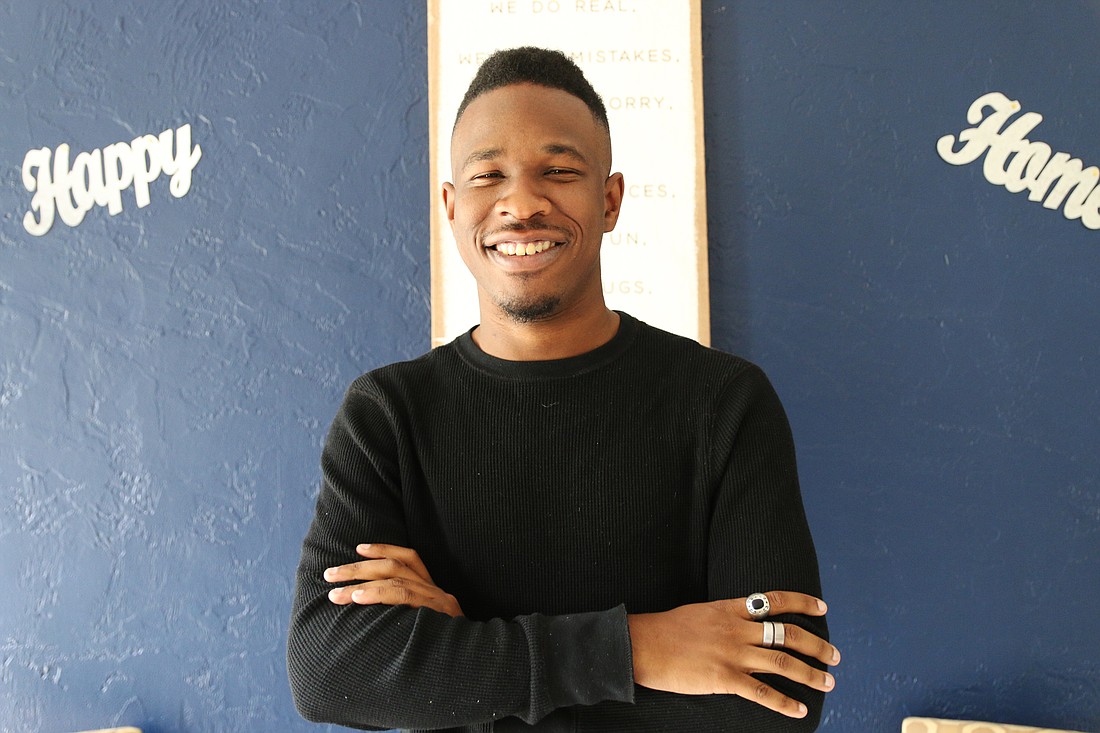- December 15, 2025

Victor Sims knows how important it is to give a child more than one chance to thrive.
After spending the first 12 years of his life in foster care, hopping from placement to placement — 22, from what he remembers — he's seen firsthand the change having a stable home can make, especially for teenagers. And as the executive director of Guiding Hope, an Ormond Beach-based foster care agency that aims to serve teens struggling in the system, he wants to make sure foster parents have both the support, and the will, to give them all the chances they need.
“I always tell people I don’t believe a child deserves a second chance — I believe they deserve another chance," Sims said.
The agency launched this month and will serve Volusia, Flagler and Putnam counties. Part of Sims' model includes the provision of mental health services, educational programs and training for foster care parents and continuum of care once a child ages out of the foster care system, thanks to a partnership with Dreams and Success Homes Foundation, a real estate organization that helps provide transitional housing for young adults 18 and up.
It's a partnership Sims hopes will bring longterm results.
"Teens deserve a fresh start when they are placed in the system," said Michael Willams, DASH executive director, in a press release. "Somewhere they don't have to be judged, condemned, and reprimanded for being challenging and unique. A home and community that expects the best from them but when the worst happens, will continue to expect and empower them to be their best.”
Sims and Williams have been working together in child welfare for about three years, and while their stories are different, they represent each end of the spectrum of the foster care system.
While Sims was adopted at 12, Williams entered the system at 12. Never adopted, Williams had been removed from his home because his mom couldn't provide him a safe place to live. But even so, he came from a loving home, he said in a recent interview with the Ormond Beach Observer.
His mother's parental rights were terminated once he entered foster care, and Williams was angry. He showed that by rebelling, and in turn, experienced over 40 different placements in his first six months in the system.
Once he aged out of the system, he realized he spent those six years of foster care in survival mode, he said. He had forgotten what his own dreams were.
“Since then, I’ve created a lot of solutions and programs and been part of a lot of programs to really change the way people look at teens who don’t want to be adopted or don’t find permanency in the system," Williams said.
According to DASH, nearly 50% of young adults transitioning out of foster care will experience homelessness within 18 months, and over 60% of women become pregnant by age 21. Less than 3% will earn a college degree by the time they reach 25 years of age.
Those are the statistics Guiding Hope is fighting, and the work starts when the children are in the foster care system.
The language of trauma is behavior, said Sims, who has been specializing in working with high-risk teenagers for the past five years. Many teenagers feel that lack of permanency in their foster homes, and are aware that for the smallest infractions they can be switched into a different placement. In some circuits in Florida, it's not uncommon for foster parents to call the police when their foster teen refuses to go to a new placement, Sims said.
He wants to ensure their foster homes aren't ones the child run away from, but ones to run to. After all, he said he and Williams are creating a program that they wish they had both had access to growing up.
“Our solutions are literally based off our stories," Sims said.
Having grown up in the system after his biological father shot his biological mother, it wasn't until Sims entered kindergarten that he realized not every child was waiting for their forever family.
In that year alone, he experienced four different placements and three schools.
“What kept me moving was that hope," Sims said. "You know, that something was better on the other side."
Now that he's established Guiding Hope, his goal is to have 100 beds for teenagers through foster homes. Currently, there are 53 children in group homes in Volusia County, according to the Florida Department of Children and Families, and Sims believe those should be a last resort in the system. He only experienced one group home in his time in foster care, and refused to be sent to another one after that. Instead, he chose to sleep in a DCF office, something that Sims said is unfortunately, not a rare occurrence.
But in order to meet his goal, Guiding Hope needs foster parents, and Sims said he seeks to raise the community's awareness of their mission, in the hopes that adults who have considered fostering in the past will step up.
“If we can find a family that’s willing to give our children chances, I think we’ve done better for our community," Sims said.
To learn more, contact [email protected]